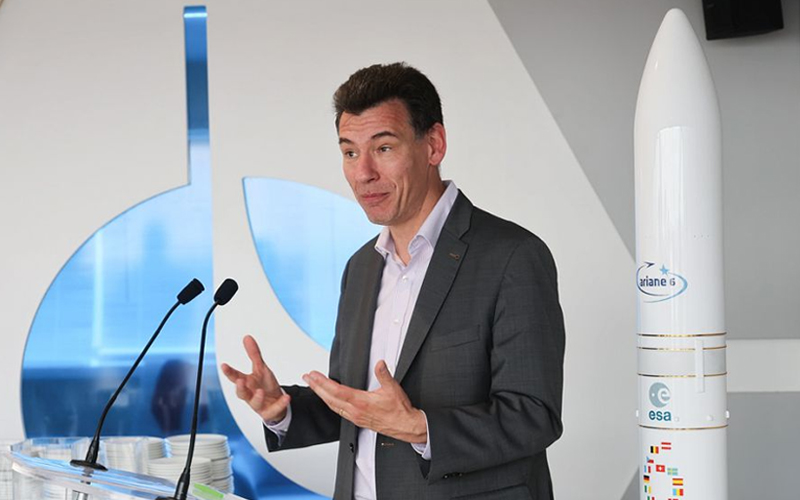
CNES chief Philippe Baptiste has responded to Eumetsat’s decision to ditch Ariane 6 for Falcon 9, saying that it is a “brutal change” and “a very disappointing day for European space efforts.”
Late yesterday, French news outlet Le Monde reported that the executive committee of Eumetsat, the European meteorological satellite agency, had asked the agency’s board of directors to cancel a contract it signed with Arianespace four years ago to launch its Meteosat MTG-S1 satellite. The mission would have been flown aboard the third Ariane 6 flight, which is expected to be launched in early 2025. The satellite will now be launched aboard a SpaceX Falcon 9 rocket.
In a post on LinkedIn, CNES chairman and CEO responded harshly to Eumetsat’s decision to ditch Ariane 6 in favour of Falcon 9, saying, “How far will we, Europeans, go in our naivety.”
In addition to expressing his dissatisfaction with Eumetsat’s decision, Baptiste also expressed the need to require European institutional missions to be launched aboard European rockets.
“I am impatiently waiting to understand what reasons could have led Eumetsat to such a decision at a time [when] all major European space countries as well as the European Commission are calling for launching European satellites on European launchers.”
In a call to action, Baptiste stated that it was “time for the European Commission to take the necessary measures so that all European institutional satellites are launched on small and large European launchers.” This sentiment echoed comments made by Arianespace earlier this week.
During a panel meeting at the European Space Forum conference, Charlotte Lang, Arianespace’s head of public affairs, stated that “the EU should enforce the principle of European launcher preference.” Quoting Lang, Arianespace published a LinkedIn update reinforcing this sentiment, stating “the need for the EU to legislate that European missions are launched from European territory using launchers and technology manufactured in Europe by European providers.”
A vote of no confidence
With the maiden flight of Ariane 6 less than two weeks away, Eumetsat’s decision to ditch the rocket in favor of Falcon 9 reads as a vote of no confidence in its anticipated future reliability. The decision also puts pressure on other European institutions to find other payloads to fulfill a commitment to purchase a minimum of five Ariane 6 flights annually. The European Commission made the decision to commit to the five guaranteed flights a year in 2017 to “ensure the economic viability” of the rocket.
Prior to Eumetsat’s decision to pull its Meteosat MTG-S1 satellite from the Ariane 6 launch manifest, Arianespace, the commercial operator of the rocket, had a backlog of thirty flights. More than half (18) of that backlog is for Amazon to launch satellites for its Project Kuiper broadband internet constellation. ESA missions, including the launch of European Commission Galileo satellites, make up a significant portion of the remaining backlog, in addition to a few commercial flights for Intelsat, Hellas Sat, and Eutelsat.




